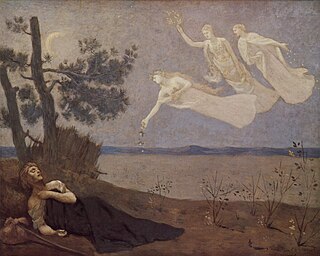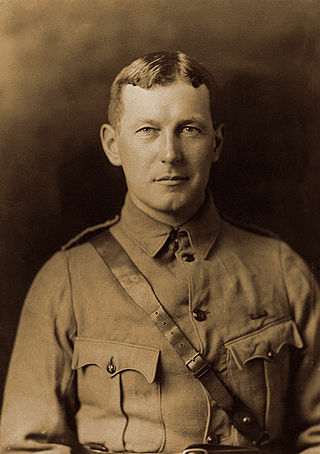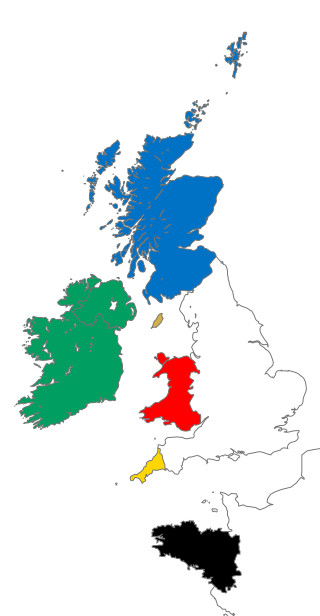
This is a partial list of authors known to have composed war poetry.

This is a partial list of authors known to have composed war poetry.
Events from the year 1916 in literature .

The Golden Treasury of English Songs and Lyrics is a popular anthology of English poetry, originally selected for publication by Francis Turner Palgrave in 1861. It was considerably revised, with input from Alfred, Lord Tennyson, about three decades later. Palgrave excluded all poems by poets then still alive.

War poetry is poetry on the topic of war. While the term is applied especially to works of the First World War, the term can be applied to poetry about any war, including Homer's Iliad, from around the 8th century BC as well as poetry of the American Civil War, the Spanish Civil War, the Crimean War and other wars. War poets may be combatants or noncombatants.

The aisling, or vision poem, is a mythopoeic poetic genre that developed during the late 17th and 18th centuries in Irish language poetry. The word may have a number of variations in pronunciation, but the is of the first syllable is always realised as a ("sh") sound.
The Oxford University Press published a long series of poetry anthologies, dealing in particular with British poetry but not restricted to it, after the success of the Oxford Book of English Verse (1900). The Oxford poetry anthologies are traditionally seen as 'establishment' in attitude, and routinely therefore are subjects of discussion and contention. They have been edited both by well-known poets and by distinguished academics. In the limited perspective of canon-formation, they have mostly been retrospective and well-researched, rather than breaking fresh ground.
Poems of Today was a series of anthologies of poetry, almost all Anglo-Irish, produced by the English Association.
—From A Prayer for My Daughter by W. B. Yeats, written on the birth of his daughter Anne on February 26
—Closing lines of "Easter, 1916" by W. B. Yeats

Nationality words link to articles with information on the nation's poetry or literature.
Nationality words link to articles with information on the nation's poetry or literature.
Literature of the 20th century refers to world literature produced during the 20th century.
Scottish Gaelic literature refers to literary works composed in the Scottish Gaelic language, which is, like Irish and Manx, a member of the Goidelic branch of Celtic languages. Gaelic literature was also composed in Gàidhealtachd communities throughout the global Scottish diaspora where the language has been and is still spoken.

In addition to English, literature has been written in a wide variety of other languages in Britain, that is the United Kingdom, the Isle of Man and the Channel Islands. This includes literature in Scottish Gaelic, Welsh, Latin, Cornish, Anglo-Norman, Guernésiais, Jèrriais, Manx, and Irish. Literature in Anglo-Saxon is treated as English literature and literature in Scots as Scottish literature.
Allan The Ridge MacDonald was a bard, traditional singer, and seanchaidh who emigrated from the Gàidhealtachd of Scotland to Nova Scotia in 1816. He continued to compose Gaelic poetry on his two separate homesteads in Canada and remains a highly important figure in both Scottish Gaelic literature and in that of Canadian Gaelic. He is also, along with John The Bard MacLean, one of only two 19th-century North American Gaelic poets from whom a sizeable repertoire survives.
Donald John MacDonald, legally Dòmhnaill Iain MacDhòmhnaill was a Scottish war poet, philosopher, and folklorist.